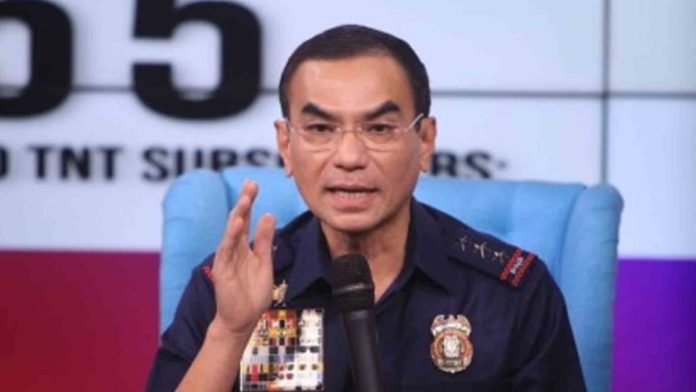The government’s program to intensify the isolation of coronavirus disease 2019 (Covid-19) asymptomatic patients and those with mild symptoms is not anti-poor, a police official said Thursday.
“This is not anti-poor as some people would say. This is, in fact, pro-poor because we would be prioritizing Covid-19 patients who have no means to isolate themselves inside their houses because of the reality that they do not have room to spare for self-quarantine,” said Lt. Gen. Guillermo Eleazar, Joint Task Force Covid Shield commander.
Under the ‘Oplan Kalinga’, health workers and village officials, assisted by the police, will facilitate the transport of all confirmed Covid-19 patients, either showing mild symptoms or asymptomatic to government isolation facilities to protect their family members from being infected.
Eleazar’s remarks came after the program drew flak on social media where some netizens accused the government of “militarizing” the approach against the health crisis and said it resembles the strategy used in the anti-drug campaign.
Contrary to criticisms, Eleazar said the program is actually pro-poor since it would provide the poor Covid-19 patients the opportunity to isolate themselves and not compromise the safety of their respective families as they will undergo quarantine on a facility that would provide everything that they need for free.
He added that ‘Oplan Kalinga’ also seeks to protect Covid-19 patients and their families from discrimination and other forms of harassment from their neighbors who see them as a threat to community health.
Eleazar said coordination was already made with the Philippine National Police (PNP) chief Gen. Archie Gamboa based on the instruction of Interior Secretary Eduardo Año for the local commanders to come up with a guideline on the role of the police under Oplan Kalinga.
He said that based on the initial rules set by the National Task Force for Covid-19, it is the health workers who will identify the houses and explain to the Covid-19 patients and their families about the Oplan Kalinga.
“It is not the policemen who will do the explaining and the police will not even knock on the doors of the houses of Covid-19 patients. Our personnel will just be on standby unless they are invited inside the house or their presence is needed inside,” Eleazar said.
He said policemen who will be tapped to assist local health workers will also be provided with appropriate personal protective equipment.
He added that part of the coordination between the local police and the LGUs is the identification of vehicles that will be used in fetching the Covid-19 patients, including the involvement of other agencies like the Bureau of Fire Protection (BFP), which is capable of transporting Covid-19 patients.
“Nobody in his/her right mind would want to expose his/her family to Covid-19. This is the reason why President Rodrigo Roa Duterte has ordered the construction of more isolation facilities in order for the government to take care of as many patients and eventually contain the transmission. And this is what we are doing under the Oplan Kalinga,” Eleazar added. (PNA)


